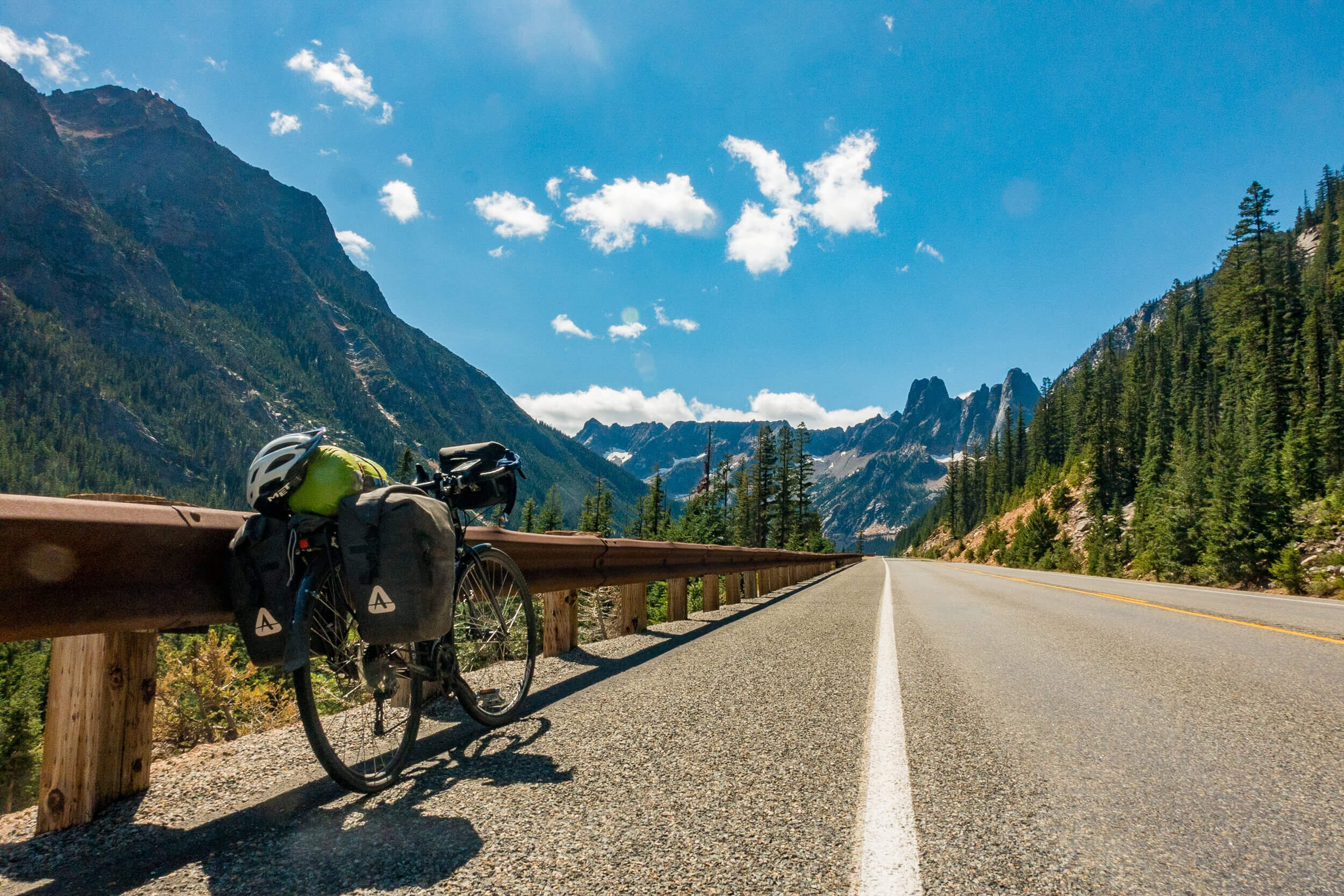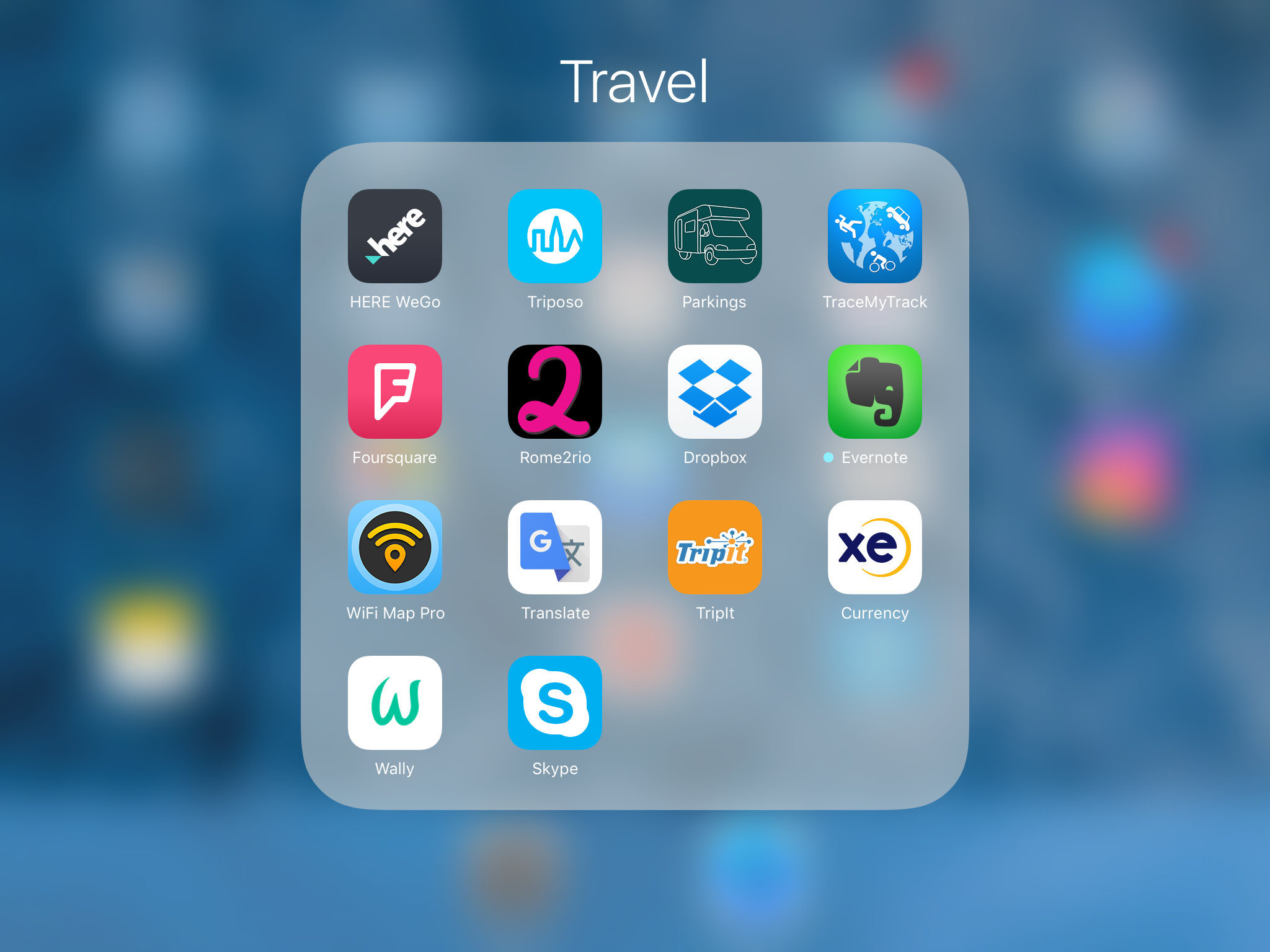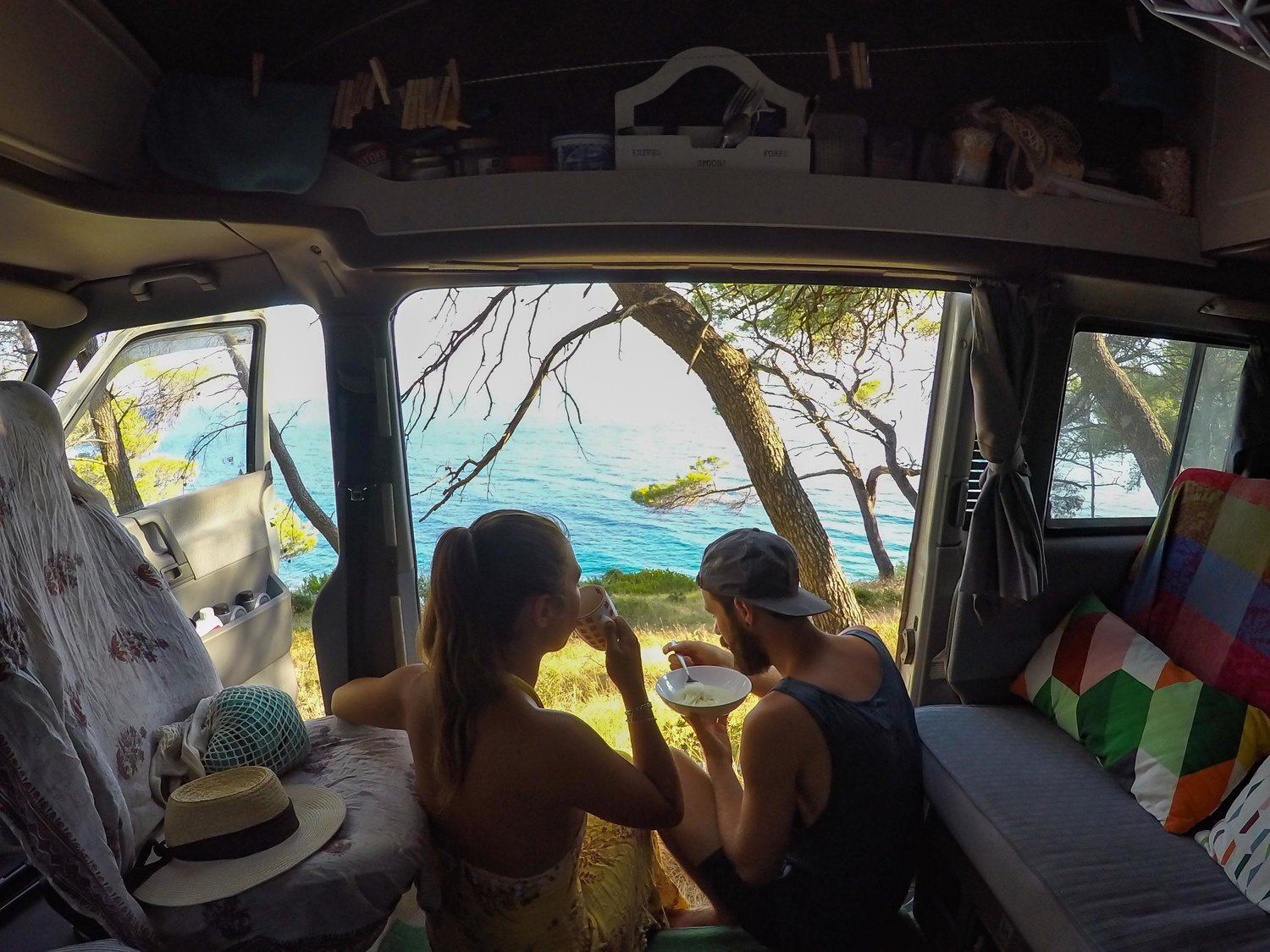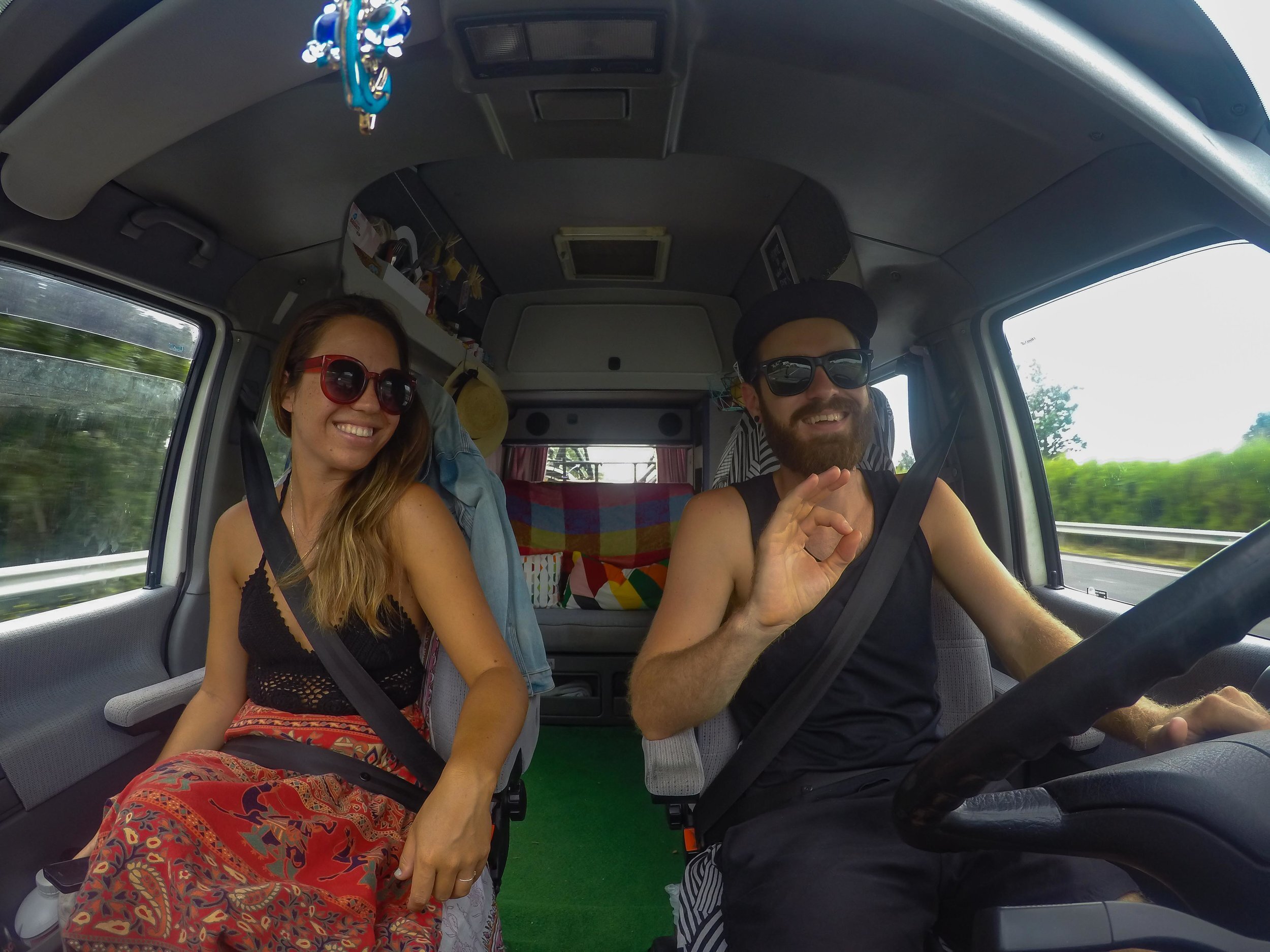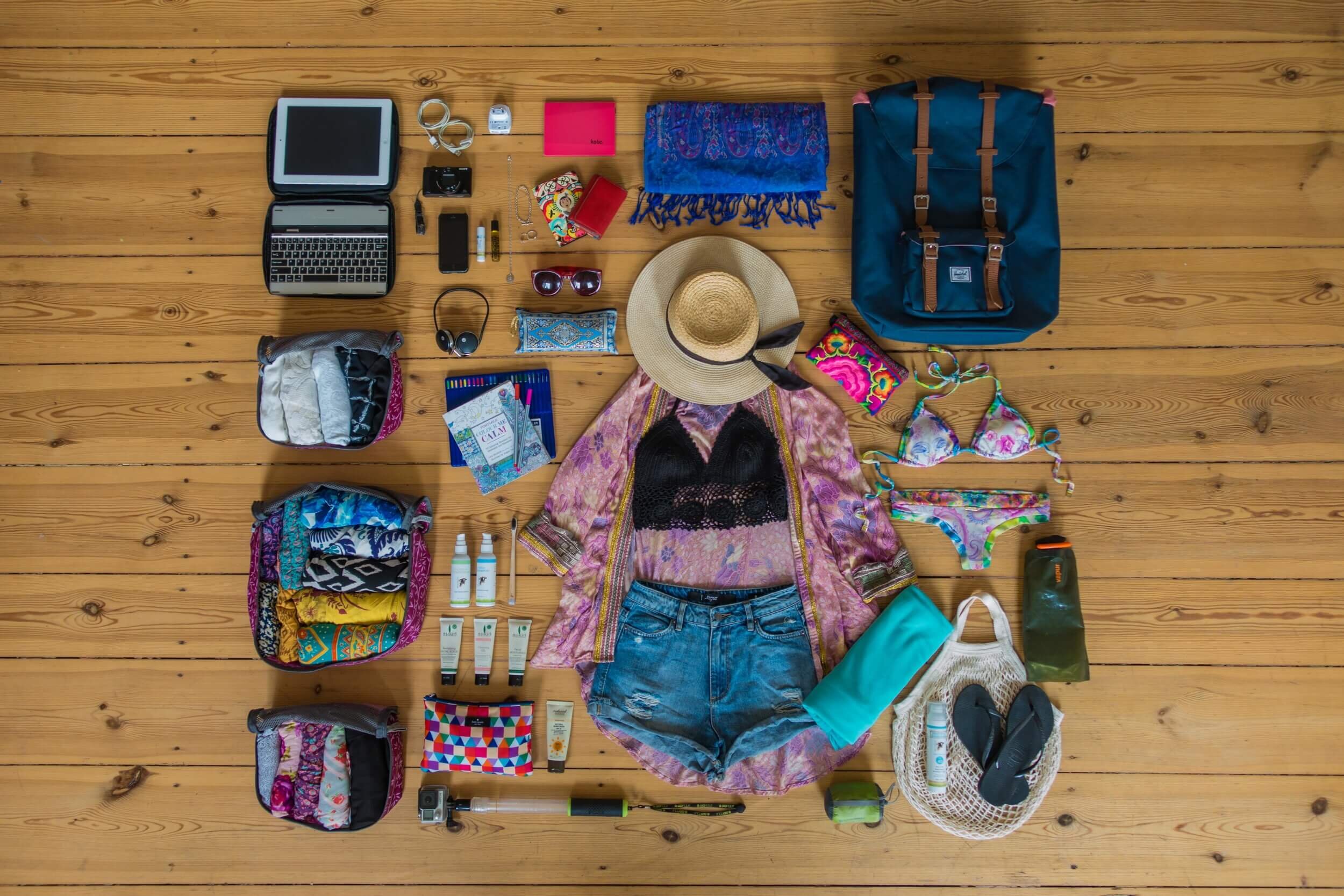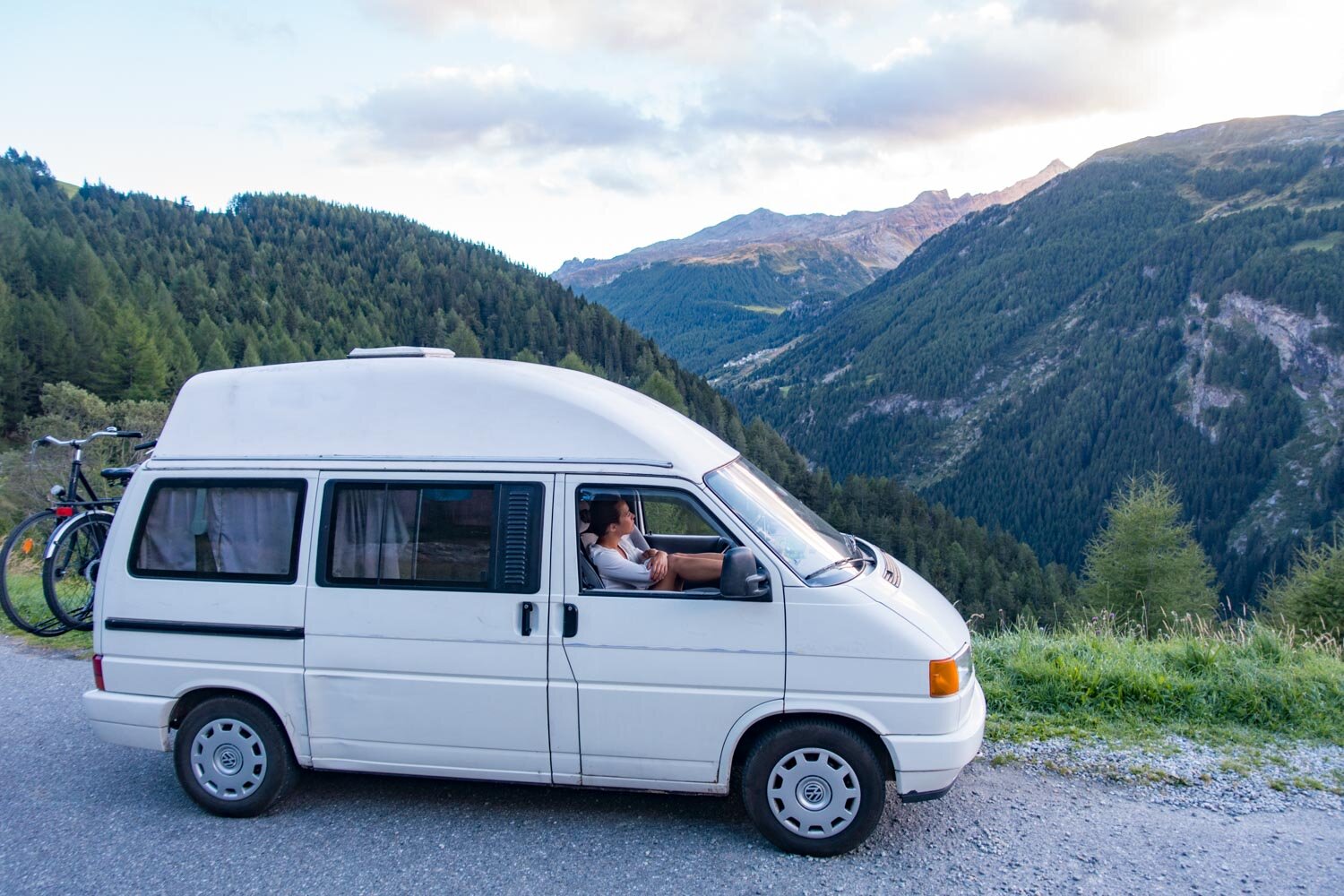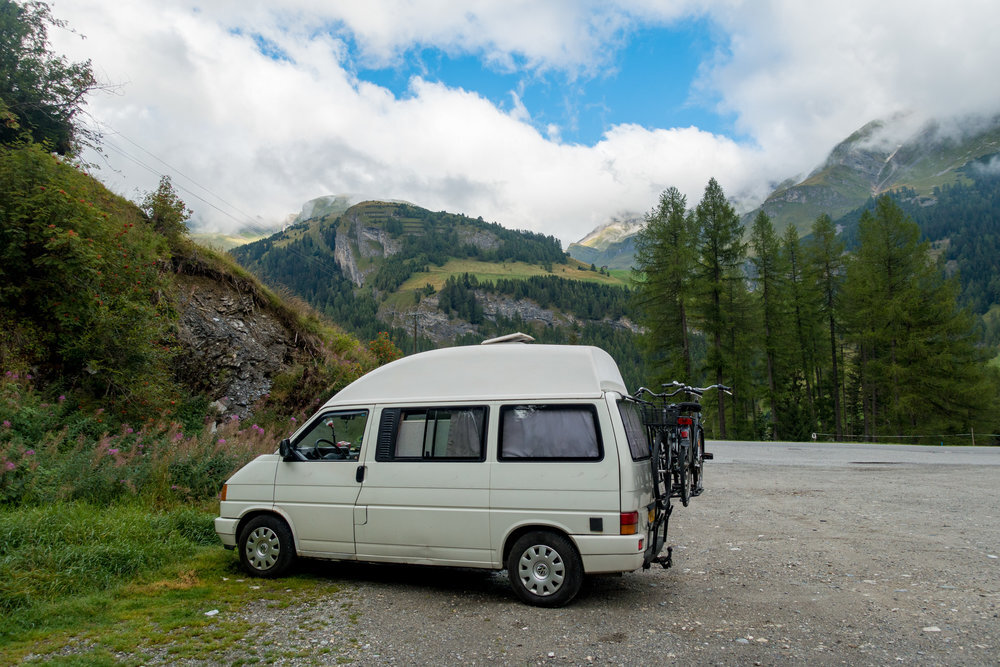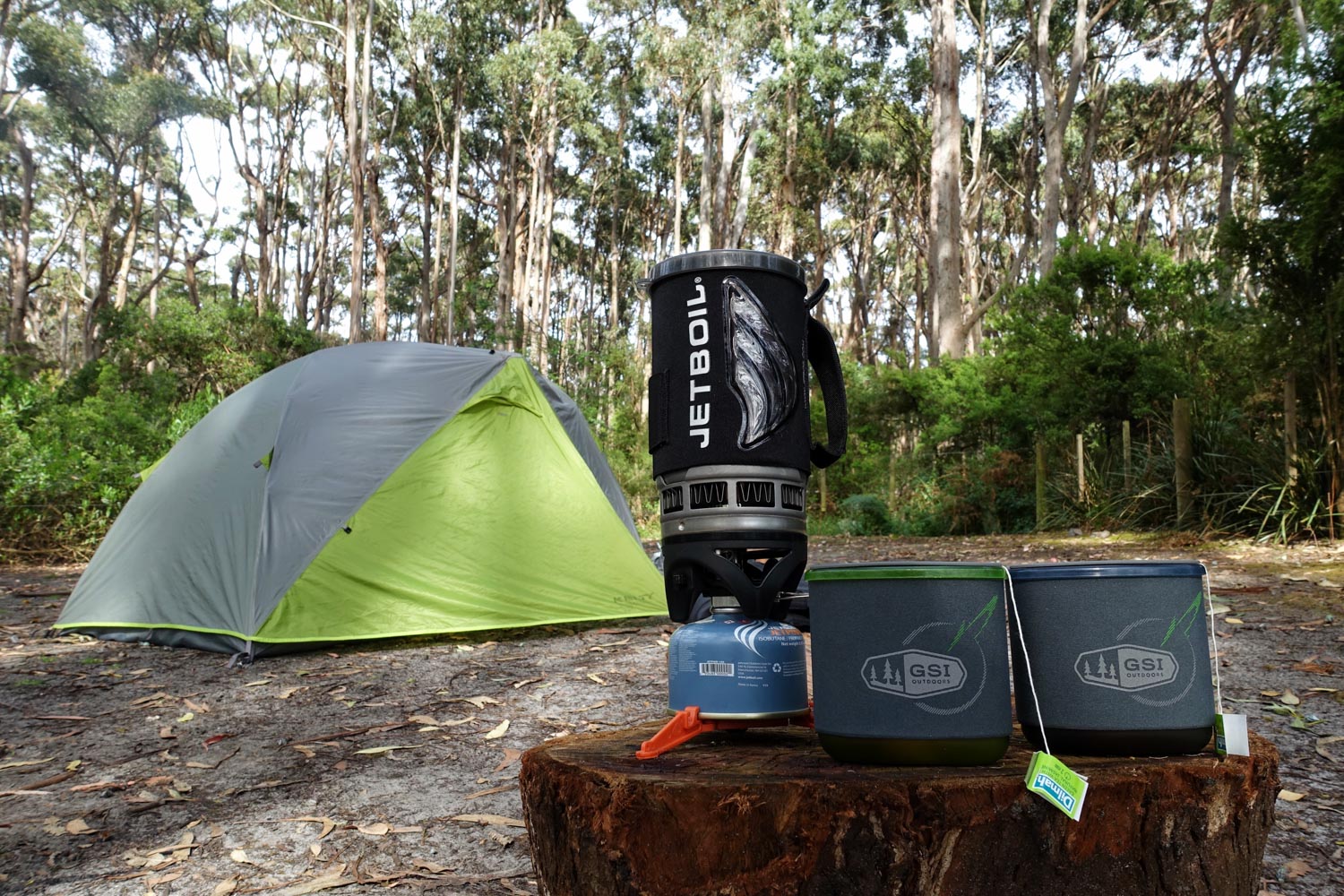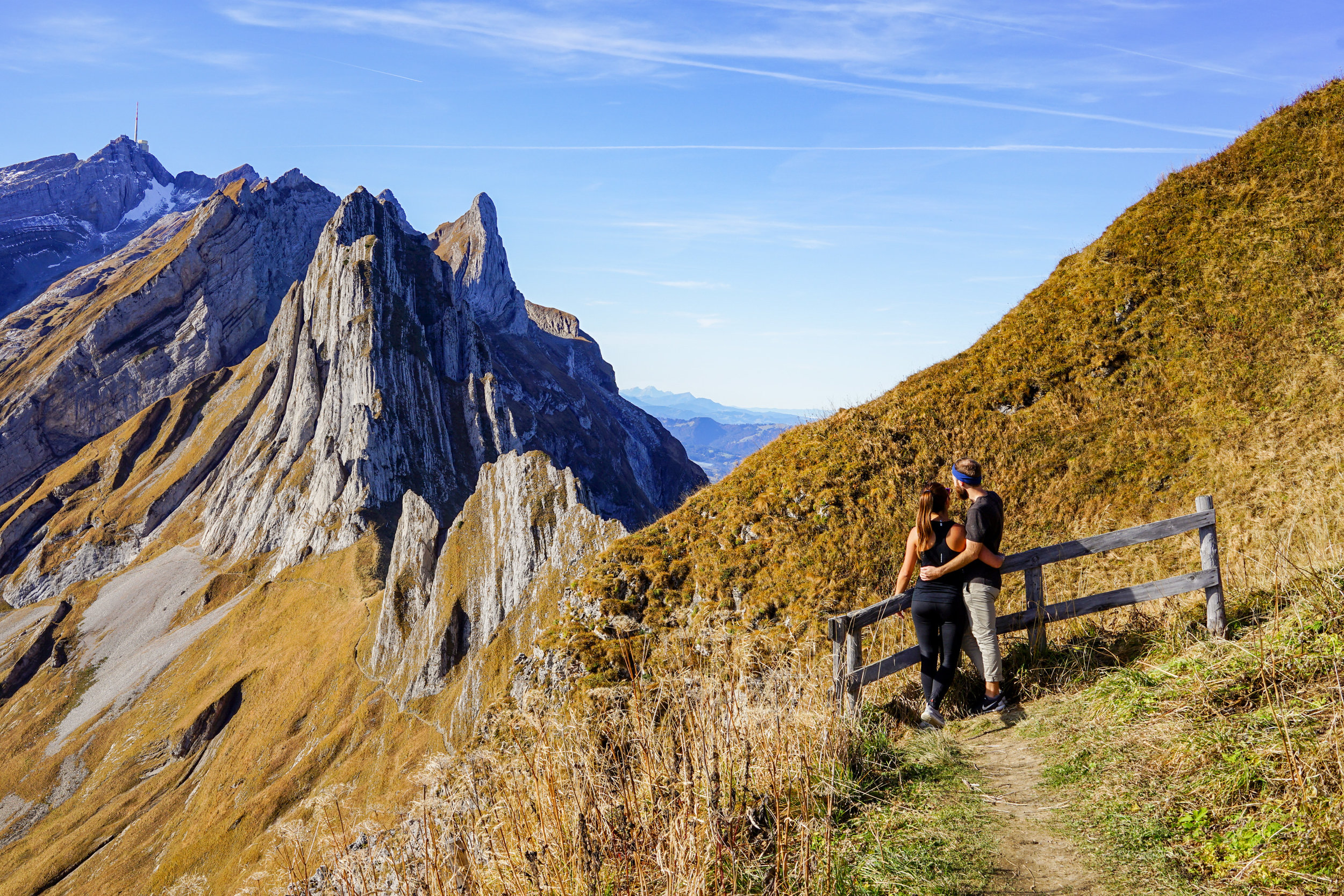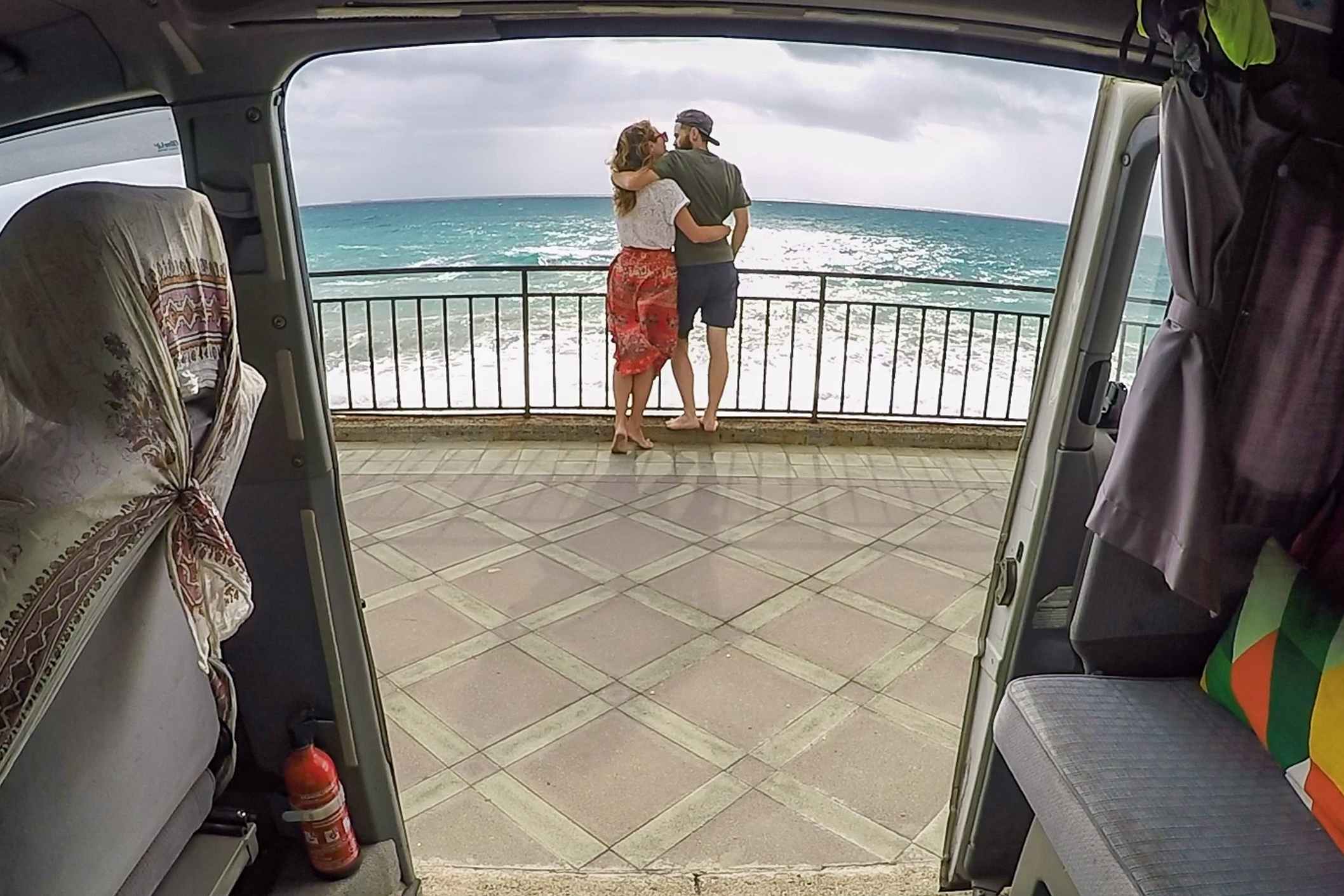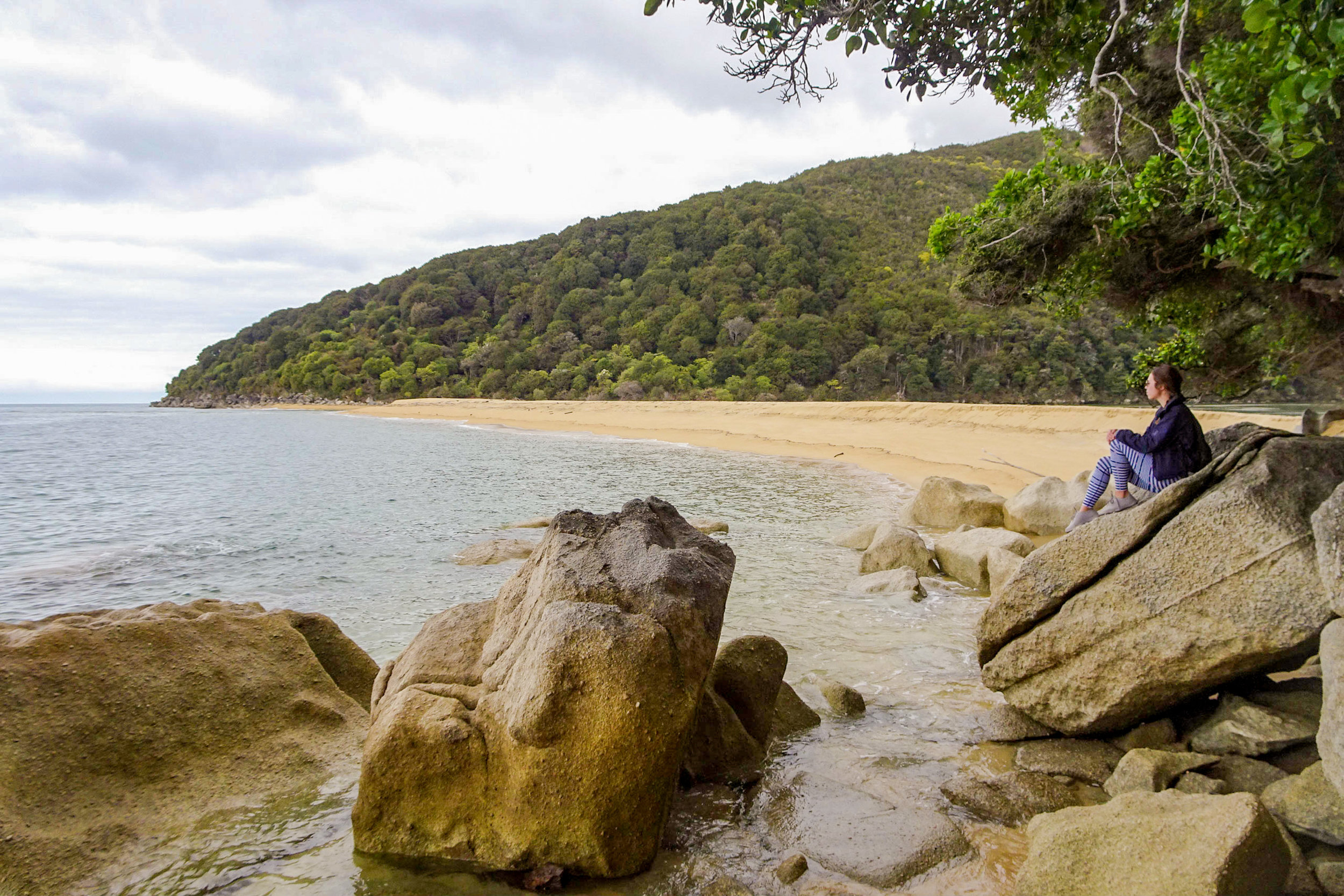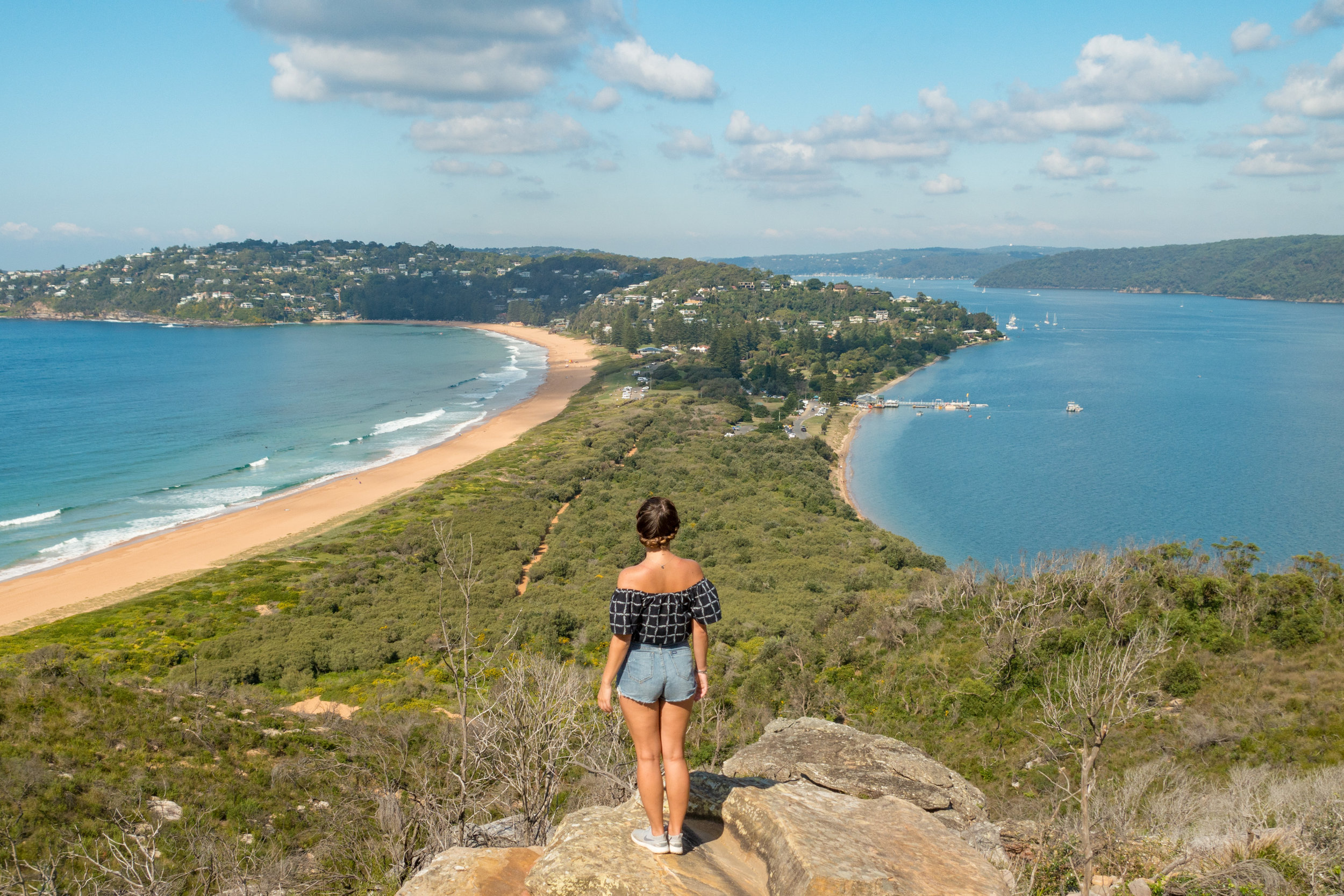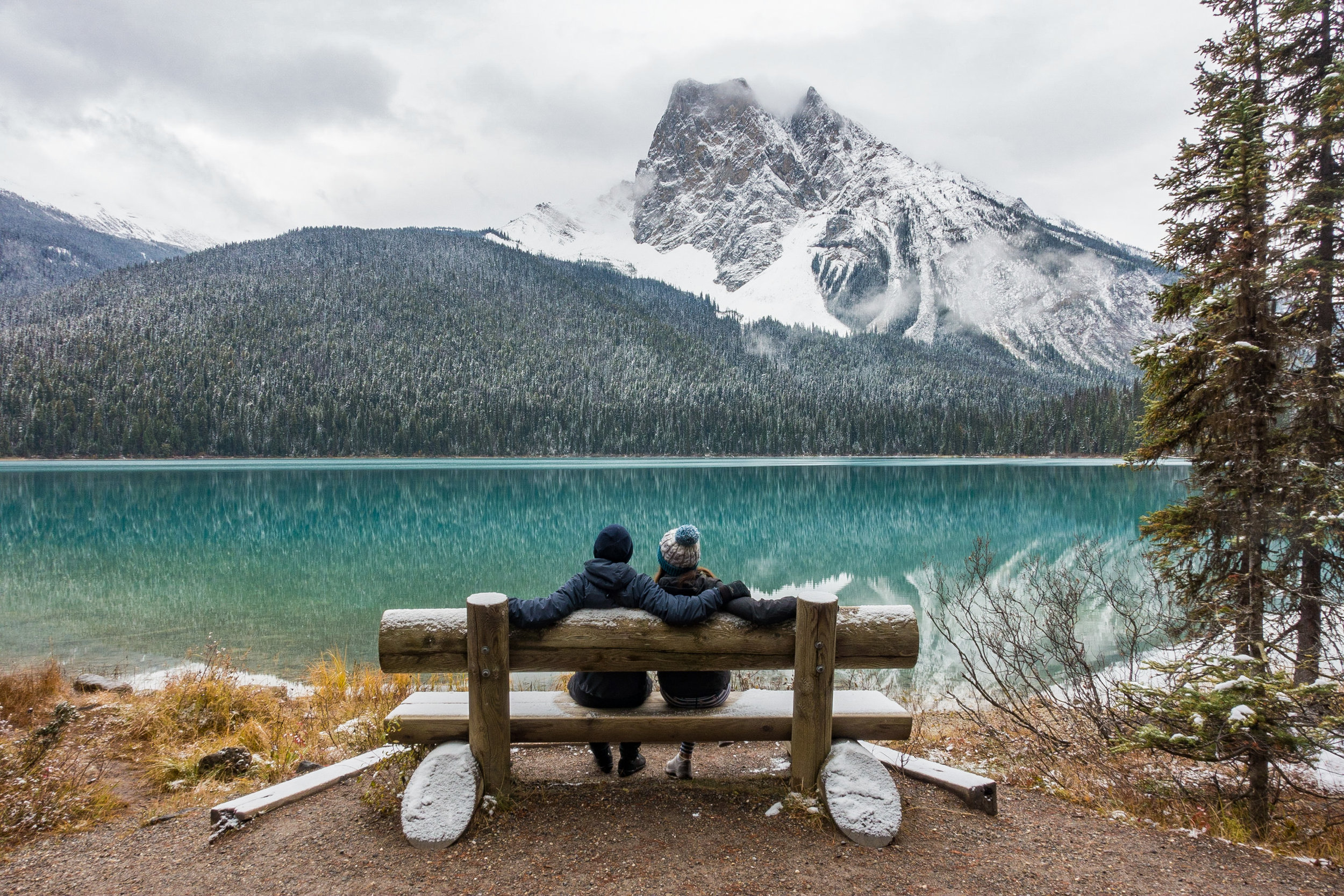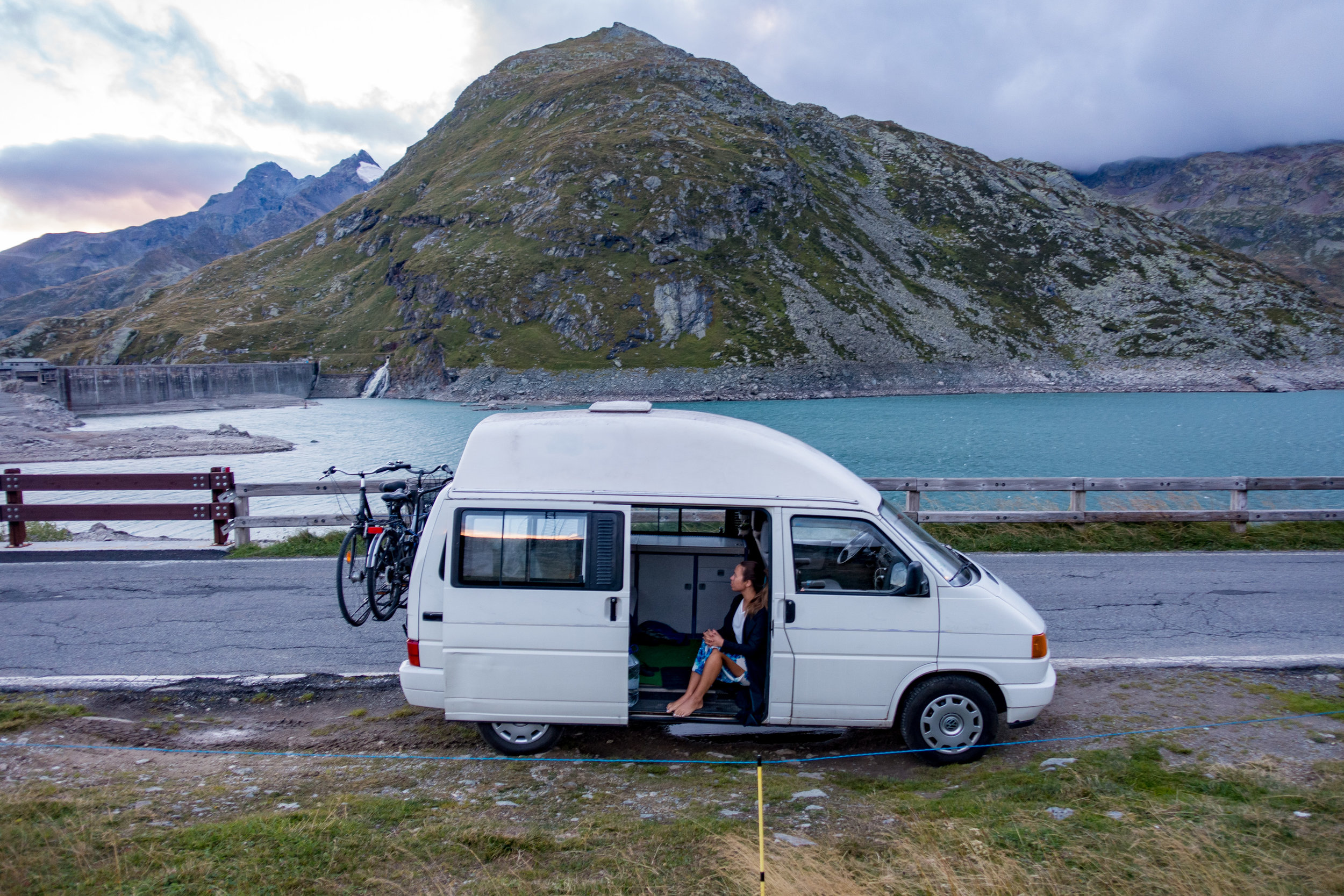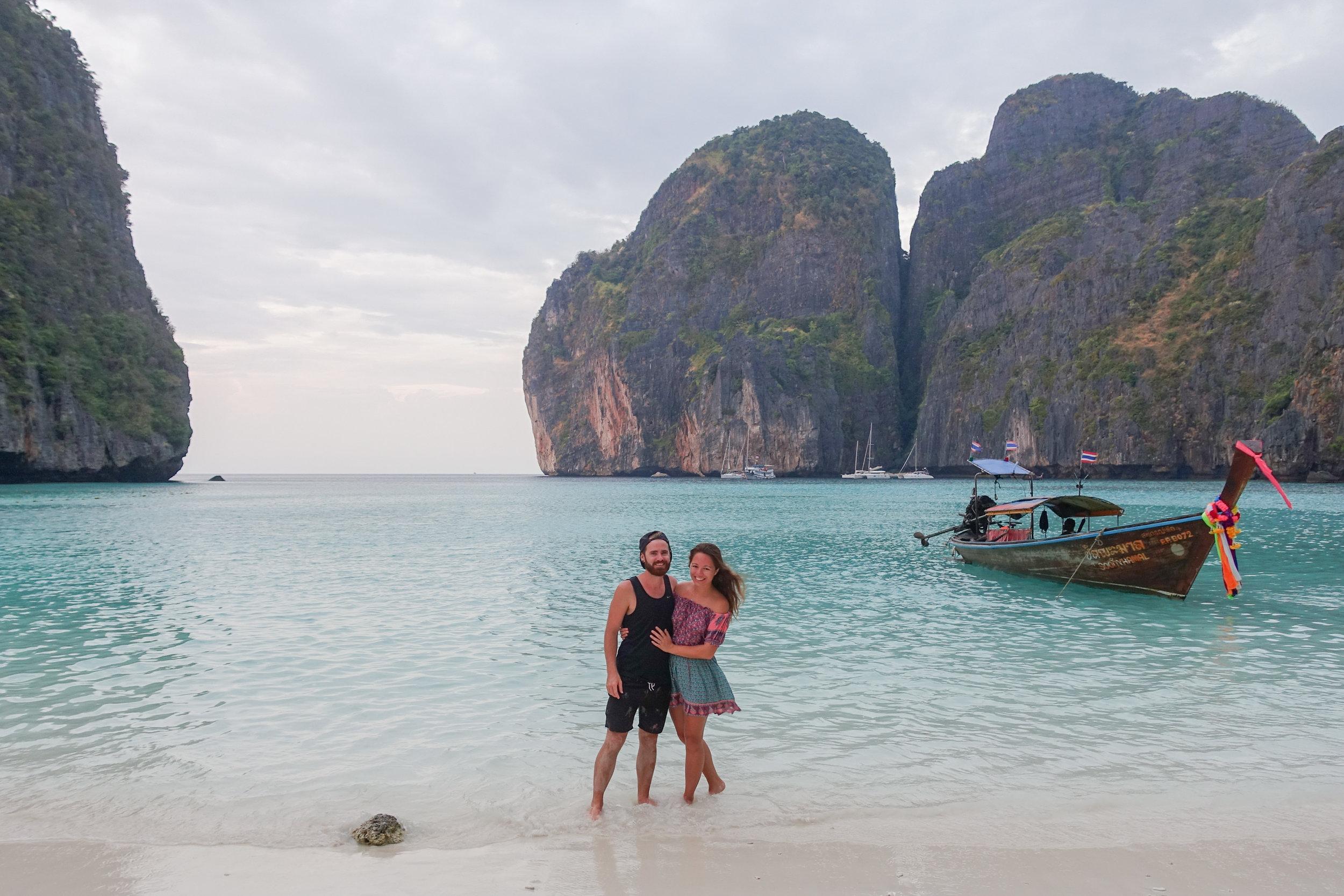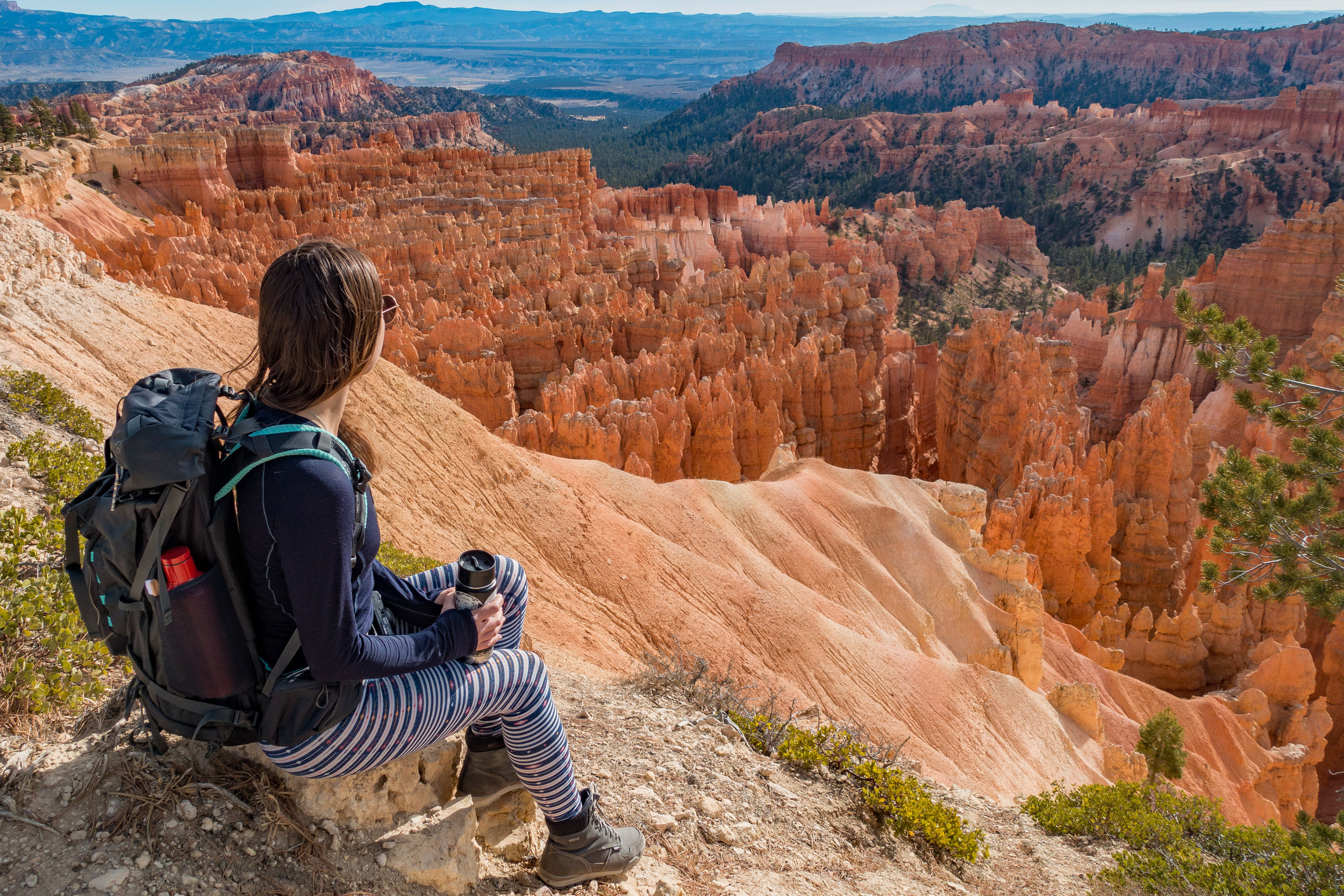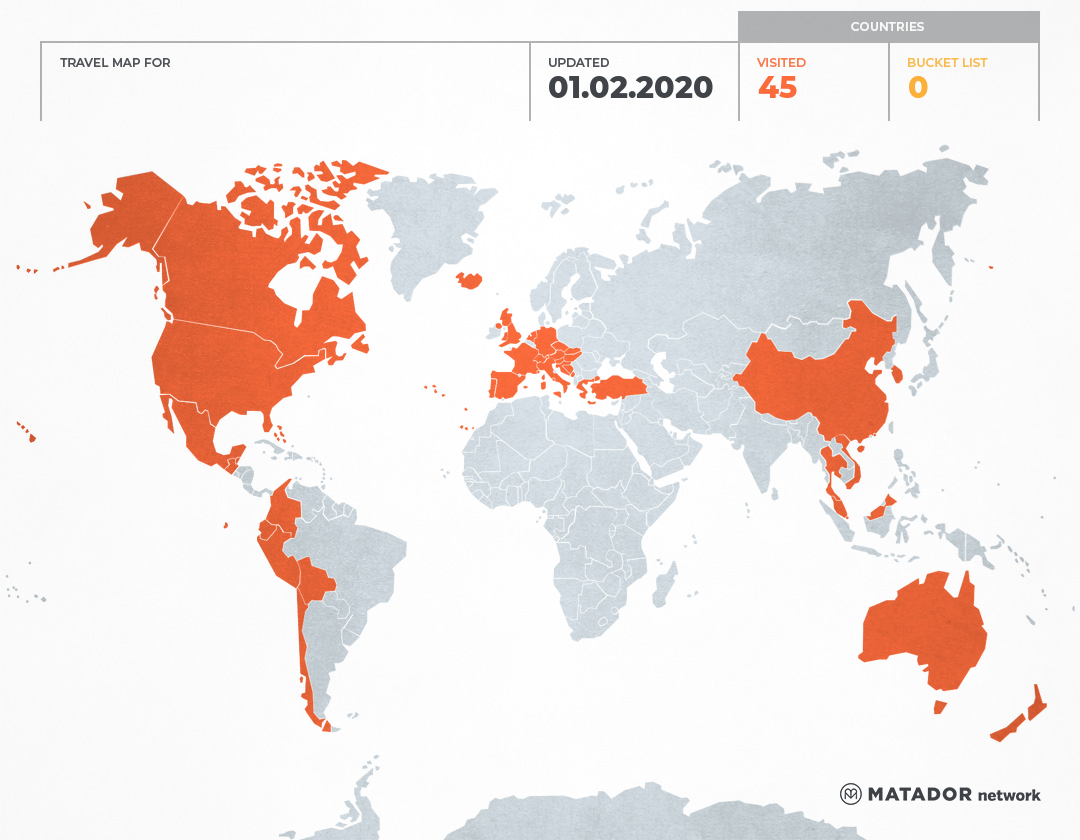The Kiwi-Aussie Guide to Moving to Canada
/Ever dreamed of living abroad? How about moving to the "land of maple", Canada? We knew we'd be money poor once our European Vanlife journey ended and figured living in Canada would be a good base to explore the Americas. Plus language wouldn't be an issue and we were still eligible as a Kiwi and Aussie to apply for work permits under the youth scheme (IEC). So with the decision made, where does one start?
How to work in Canada.
The IEC program allows for participants (under the age of 35) from NZ, Australia and a number of other participating countries to apply for a 2 year work permit for Canada. The process is lengthy, but if you take the time to read through all the mundane paperwork it's easy enough to do it yourself. If you want an easier way out you can pay a company like STA, a large fee to do the application for you. From what I understand, these companies can also help you with job placement at places like ski resorts. We are very independent and I wanted to save some moolah, so I chose to do the applications myself via the online portal.
Applying for your IEC.
You can read more about what is required to apply. Before you dive straight in, make sure you check out the schedule for what dates you can apply throughout the year.
Putting it simply, kiwis and aussies are required to submit:
- Information about your work experience
- Weird questions about your family
- Proof of funds
- A work permit fee
- Valid passport
- Proof of 2 years worth of insurance cover. (We bought back to back policies with World Nomads.)
- Police checks from all countries you've resided in. (If you live in Australia, make sure you get your police check direct from the government. Dan paid an extra fee for a speedy online service with and it was rejected.)
How long does it take.
Each country seems to have their own allotment of work permits, so depending on what time of the year you apply and how many applicants of your country they have received, processing times vary. While I applied before Dan (due to his police check debacle) he was accepted 2 months before me. Our applications took 3 and 5 months to go through. Once you have been sent your letter of invitation, you have 1 year to enter Canada. You will receive your actual visa in person (after waiting in the mind-numbing long customs queue) when you first arrive in Canada and present your supporting documents.)
After you've been accepted.
Network with fellow Aussies and Kiwis for insider tips. I suggest joining as many facebook networking groups as possible before you arrive. They are an absolute wealth of information on every topic imaginable. When searching for a place to live, job opportunities or where to pick up some weetbix or marmite... this is always my go to. After posting a question about where to get the best flat white in Vancouver, I was inundated with the best recommendations I wouldn't have discovered on my own.
Some Facebook groups we suggest joining:
- Aussies in Toronto
- Aussies in Canada
- Aussies in Vancouver
- Kia Ora Vancouver
- Kia Ora Toronto
Once you've made it into the land of maple...
Get a SIN number.
This is by far the easiest thing to do in Canada. Simply walk into any Service Canada office with your passport, address and work permit to apply for your SIN number, which allows you to work and pay tax.
Getting connected.
I have no advice for you on Telcos, except that they are incredibly expensive when compared to home. Depending on which state you move to, the large companies like Rogers, Telus and Fido have the monopoly over the market. Coverage can be an issue, so make sure you check out reviews on facebook and the likes before choosing a provider. Depending on your usage and what their current promotions are, you will have to weigh up which plan is best for you. We went with Fido.
Setting up a bank account.
When you arrive into Canada, get yourself set up with a bank account. Canadian banks charge account fees, so I recommend shopping around for the best "new resident offers". We initially went with TD Bank as they waived their fees for the first 6 months.
Frustrated with the cost of banking, we then switched to Tangerine Bank as they offer accounts with zero fees. Tangerine have a smaller presence in terms of number of branches, but we find their overall service is really good. You will need a Canadian id or bank account to create an account with them, so it's a good idea to switch to them when the offers on the first bank you join with runs out. Claim $50 free cash when you set up your Tangerine account using our referral key- 48287273S1.
What the heck is a cheque.
I remember distinctly opening my first bank account at the age of 6 and being handed a glossy cheque book. I practised signing my signature over and over and got a real thrill out of filling out the deposit slips. I'd long forgotten all this until I was presented w, ith a checque book in Canada. Yes, Canadian banks are stuck in the 90's. I have become accustomed to bank apps, automatic transfers, BPays and sending money via mobile number. So it was pretty tedious to have to go back to slower, less efficient paper banking.
But I don't want an actual credit card.
While credit card transactions are preferred in Canada, we are yet to find a bank that offers a visa/mastercard debit card. In order to apply for an actual credit card without having a Canadian credit history, they will instead freeze funds in your debit account for 50% of the card limit. I miss being able to spend my own money online.
Transferring funds from Australia or NZ.
There is no easy or cheap way to do this. We personally use Transferwise and Paypal. Everyone has their own preference but they all charge fees and have average exchange rates. Shop around and choose whoever offers the best rate for the amount you are transferring.
A roof over your head.
This is one hurdle that we managed to avoid. The general consensus is that housing is both expensive and hard to come by. So in this instance we can't help you here. We only stayed in Canada for 6 months and got by with a combination of living with extended family, Airbnbs, Housesitting and Workaways. My suggestion is to utilise facebook groups like "Aussies in Vancouver" as they often advertise rooms for rent and favour Australasians. If you are choosing to work the ski season, and apply early enough you can generally secure housing that way. While on the subject of housing, weird fact for you- houses in Canada have inadequate lighting. I can honestly say I've never paid much attention to lighting in houses until Canada. That was until in house after house, I wondered why there were no lights in the ceilings. Sure they have gone to the trouble of having light switches installed, but these are connected to plug-in lamps. Canada, why don't you have any roof lighting? If you can find the reason for this weird phenomenon, please share it with me. I'd love to know why! Also bed bugs are a real thing, so be mindful of this if looking to score some second hand furniture.
Getting a job.
While I often read that picking up work can be a difficult task, we didn't experience any issues. My number one tip for applying for work in a new country is pimping out your Linkedin. Expect recruiters and hirers to have no knowledge of your previous employers so an online profile with links to the businesses helps give you credibility. Make sure you reach out to past employers for written recommendations, which helps with the time zone difference.
It's definitely worth taking a look at job opportunities before you arrive. We reached out to AV companies in Toronto prior to moving there, so Dan had lined up interviews by the time we arrived. Oh and expect to get paid by cheque, in the actual post. And then having to cash said cheque... and waiting for it to clear.
Try these places to start looking for work:
- indeed.ca
- Workopolis
- Monster
- Kijiji
- Facebook Groups
Driving in Canada.
When you first arrive in Canada, you are allowed to drive for 2 months on your own Aussie or Kiwi license, before having to switch it over to a Canadian ID. In order to make the switch you need your full driving history issued by your government. This takes time to organise, so apply for one before you fly over. In order to receive your new license, you will actually hand over yours. When it comes to the driving, be advised that parking signs will confuse you and that each state has its own unique set of rules. In general, for most suburban streets road parking requires a permit. You'd be best to look at the transport authority page for the state you choose to settle in. Don't park close to a fire hydrant, you'll get a ticket! Also forget about roundabouts, Canadians don't use those. They prefer to sit at traffic lights.
Getting around.
We've found the public transport in both Vancouver and Toronto to be well connected. If you are game, most routes can also be navigated by bicycle. Car share is a really affordable option, once you have switched over to a Canadian license. This is our recommendation so you don't have to suffer all the registration fees and can avoid paying for parking.
Don't move over in the winter.
Unless you are hitting the slopes, citylife in the -25 celcius range is dreary and does not bring out the best in people. You will learn the true meaning of being cold and realise that everyone becomes more withdrawn and anti-social. On day two of arriving into Toronto, I headed to my nearest Icebreaker store and purchased the thickest, most expensive underwear they had. As I made my purchase, I was advised that it was actually relatively mild at the moment. Be prepared. Rug up, carry hand sanitzer with you and try not to get sick. Oh and if you are moving to Vancouver, take all your best wet weather gear because the rain sets in.
Visiting the doctor.
If you heeded my prior advice and wound up sick after suffering through the winter you will learn that GPs work on either an appointment only or a walk-in only basis. For walk-ins be sure to arrive early in the morning, before all of the time slots book out. They will often assign you a time to come back later on in the day. Prices are very high until you have been working for 3 months and your employment health care kicks in.
We heart coffee.
Depending on your level of coffee snobbery, a regular coffee here consists of cream, 2 sugars and an unlimited supply of filter. The bigger, the better and Canadians love generic brands. The larger the better and the more genric is most popular. You will hear the name Tim Hortons spoken of with fondness. Blergh right? For any likeminded espresso-loving fiends like us, there is hope for you. With some research you will find that there are some great hipster cafes. We favour buying some local good beans, having them ground and then doing a french press. If you need good coffee suggestions in Toronto or Vancouver, drop me a line!
Embrace the bagel but not the orange cheese.
Don't get me wrong there are some good sourdoughs available if you look far and wide for them. But if you are shopping in your plain old supermarket, always choose bagels over bread. The bread does not impress. Cheese lovers, it's worth finding out where they stock good cheese because orange cheese is just unnatural. Where does the orange colouring come from? Did I make specific trips into the city to pick up some Kiwi edam, yes I did. Was it worth it? Absolutely, that or the Irish cheddar.
Say no to craft beer.
Craft beer in Australia and NZ is clean and simple. The Canadians love to experiment with all sorts of interesting combinations and flavours. We tried sampling paddles at every craft brewery we passed. And we didn't return to any of them, you've been warned.
But what is the final price.
If you've ventured to the U.S. before, you won't be new to taxes or tipping on top. What you may not realise however is that in each province of Canada, the taxes are calculated differently. Or that the tax differs depending on what you buy. Forget about good old included GST, I still don't know how to calculate tax. As a rule when I look at prices, I often estimate that it will cost me an extra 30% more than the advertised price.
Why we left Canada.
For a number of reasons, we didn't stay the whole 2 year stint in Canada. The number one reason was the weather. What we've realised is that we'd prefer to avoid extreme cold or rain for months. Canada just wasn't for us but we know a lot of people who have done the full slog. Who knows, maybe we will go back next summer while our visas are still good.
